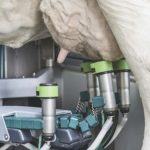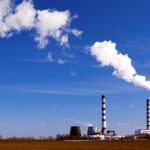1.
Tag Archives greenhouse gases

Economist sounds alarm over carbon reporting
Prof draws attention to how policy is affected by ignoring the carbon sequestration value of grain production
Glacier FarmMedia – Agricultural economist Richard Gray says the worldwide carbon accounting system used to plan grain policy is flawed because it fails to properly include how grain stores and […] Read more

Dairy industry makes strides in sustainability and GHG mitigation
Advances and adoption of new technologies show positive impact, according to new report
North American dairy production is reducing its impact on the climate while maximizing production through genetics, technology and data-driven decisions. That’s the conclusion of a recent report, ‘The Environmental Benefits […] Read more

Opinion: Fertilizer reductions are possible
Retired prof says 2030 target is achievable with incentives for farmers
The 4R principles promoted by Fertilizer Canada are increasingly accepted and practiced by farmers across Canada. It makes sense to apply nutrients from the right source, at the right time, […] Read more

Canada launches offset credits to help tackle emissions
Landfill gas protocols now launched; ag-related protocols soon to follow
Reuters — Canada on Wednesday launched a credit system for greenhouse gas offsets, a major part of its plan to cut carbon emissions, starting with a set of rules stipulating […] Read more

Canada lays out $9.1 billion roadmap to meet 2030 climate targets
About $1 billion earmarked for new or expanded ag programs
Reuters — Canada released its first real roadmap to meeting 2030 climate targets on Tuesday, laying out detailed plans and $9.1 billion in new spending to cut planet-warming carbon emissions […] Read more

Agriculture emissions reduction a complicated task
New report says agriculture produced 10 per cent of Canada’s greenhouse gases in 2018 but there is no simple solution
Glacier FarmMedia – There is no simple solution that will allow Canadian farmers to reduce greenhouse gas emissions while continuing to grow food to help feed a hungry world, says […] Read more

Comment: Double vision – The future of livestock
There is a bright future available for Ontario’s livestock sector, but it won’t happen on its own
I recently gave a presentation on the future of livestock focused on big things that will impact the future. Quantum computing will affect analysis of big data, drug development and […] Read more

Investor group warns livestock industry needs to do more on methane
FAIRR Initiative report could influence how, and where, members invest
Reuters – A global push to cut methane emissions and end deforestation is at risk of being held back by weak corporate efforts in the livestock industry, an investor group […] Read more

EU’s GHGs rise by nearly a fifth on economic rebound
Greenhouse gas emissions from European Union countries jumped 18 per cent last spring, according to data from the bloc’s statistics office, as all economic sectors released more harmful gases into […] Read more

Data collection in the barn can help farmers make better decisions
Well-managed animals can reduce GHG emissions by 30 per cent, says researcher
Better livestock health through more precise management represents a significant greenhouse gas reduction opportunity for livestock farmers, says a senior executive with an animal health multinational. Innovation is a major […] Read more
